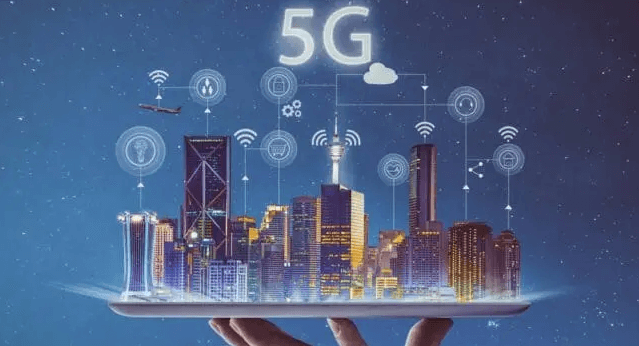What are the implications of the widespread adoption of 5G technology for businesses and consumers in the USA?

Introduction
5G technology, the fifth generation of mobile networks, promises to revolutionize the way we connect, communicate, and conduct business. With its unparalleled speed, ultra-low latency, and massive connectivity capabilities, 5G is set to drive innovation across various sectors. As the USA continues to roll out this groundbreaking technology, it is crucial to understand its potential implications for both businesses and consumers.
Understanding 5G Technology
5G technology is not merely an upgrade from 4G; it represents a significant leap forward in mobile communication. With speeds up to 100 times faster than 4G and latency reduced to mere milliseconds, 5G enables real-time data transmission and supports a vast number of connected devices simultaneously.
Enhanced Connectivity for Consumers
One of the most significant benefits of 5G for consumers is the dramatic increase in internet speed and reliability. Streaming high-definition content, downloading large files, and engaging in online gaming will become seamless experiences. The enhanced bandwidth will also support more devices per household without compromising performance.
Smart Homes and IoT Integration
5G will accelerate the adoption of smart home technologies. Devices such as smart thermostats, security cameras, and household appliances will communicate more efficiently, providing a more integrated and automated living experience. The Internet of Things (IoT) will thrive in a 5G environment, making homes more responsive and energy-efficient.
Transformative Impact on Businesses
For businesses, 5G offers opportunities to enhance efficiency and productivity. High-speed internet and low latency will enable faster communication and collaboration, particularly in industries that rely on real-time data. Businesses can leverage cloud computing and remote working solutions more effectively, fostering innovation and agility.
Revolutionizing Industries
5G is set to revolutionize various industries. In healthcare, it will enable telemedicine and remote surgeries, improving access to medical services. The manufacturing sector will benefit from smart factories, where machines communicate and operate autonomously. The retail industry will see advancements in personalized shopping experiences through augmented reality (AR) and virtual reality (VR).
Economic Growth and Job Creation
The widespread adoption of 5G technology is expected to contribute significantly to economic growth. By 2035, it is estimated that 5G will enable $13.2 trillion in global economic output and create 22 million jobs worldwide. In the USA, this translates to substantial job creation in sectors like telecommunications, manufacturing, and information technology.
Challenges and Considerations
Deploying 5G infrastructure is a complex and costly endeavor. It requires the installation of numerous small cells, antennas, and fiber optics. Ensuring nationwide coverage, especially in rural areas, will be a significant challenge. However, the long-term benefits of improved connectivity make this investment worthwhile.
Cybersecurity Concerns
With the increased connectivity of 5G, cybersecurity becomes a critical concern. More connected devices mean more potential entry points for cyberattacks. Businesses and consumers must prioritize robust security measures to protect sensitive data and maintain trust in the digital ecosystem.
Energy Consumption
While 5G technology promises numerous benefits, it also raises concerns about energy consumption. The infrastructure required to support 5G, including data centers and network equipment, can lead to increased energy use. However, advancements in energy-efficient technologies and renewable energy sources can mitigate this impact.
Sustainable Practices
Businesses adopting 5G should consider sustainable practices. Implementing energy-efficient network designs, using eco-friendly materials, and promoting digital solutions that reduce the carbon footprint can help balance technological advancement with environmental responsibility.
The Future of 5G in the USA
The adoption of 5G will pave the way for continuous innovation. Emerging technologies such as artificial intelligence (AI), machine learning, and blockchain will be further enhanced by 5G’s capabilities. These technologies will drive new business models, improve customer experiences, and create opportunities for startups and entrepreneurs.
Digital Inclusion
5G has the potential to bridge the digital divide in the USA. By providing high-speed internet access to underserved and rural communities, 5G can promote digital inclusion and ensure that everyone benefits from technological advancements. This will require collaboration between government, businesses, and telecom providers to develop inclusive policies and infrastructure.
FAQs
What are the main benefits of 5G for consumers?
The main benefits include significantly faster internet speeds, more reliable connections, and enhanced integration of smart home devices and IoT technologies, leading to a more seamless and automated living experience.
How will 5G impact businesses in the USA?
5G will enhance business efficiency and productivity by enabling faster communication, better collaboration, and innovative solutions in industries like healthcare, manufacturing, and retail. It will also drive economic growth and job creation.
What challenges does the deployment of 5G face?
Key challenges include the high cost and complexity of infrastructure development, particularly in rural areas, and cybersecurity concerns due to increased connectivity.
How does 5G contribute to economic growth?
5G is expected to enable substantial economic output and job creation by fostering innovation across various sectors, improving business efficiencies, and supporting new technologies and business models.
What are the environmental concerns associated with 5G?
Concerns include increased energy consumption due to the required infrastructure. However, advancements in energy-efficient technologies and sustainable practices can mitigate these impacts.
How can 5G promote digital inclusion?
By providing high-speed internet access to underserved and rural areas, 5G can help bridge the digital divide and ensure broader access to technological benefits, fostering digital inclusion.
Conclusion
The widespread adoption of 5G technology in the USA holds immense potential for transforming both business and consumer landscapes. From enhancing connectivity and driving innovation to fostering economic growth and promoting digital inclusion, 5G is poised to revolutionize the way we live and work. However, it is crucial to address the associated challenges, including infrastructure development, cybersecurity, and environmental impact, to fully realize the benefits of this transformative technology.







